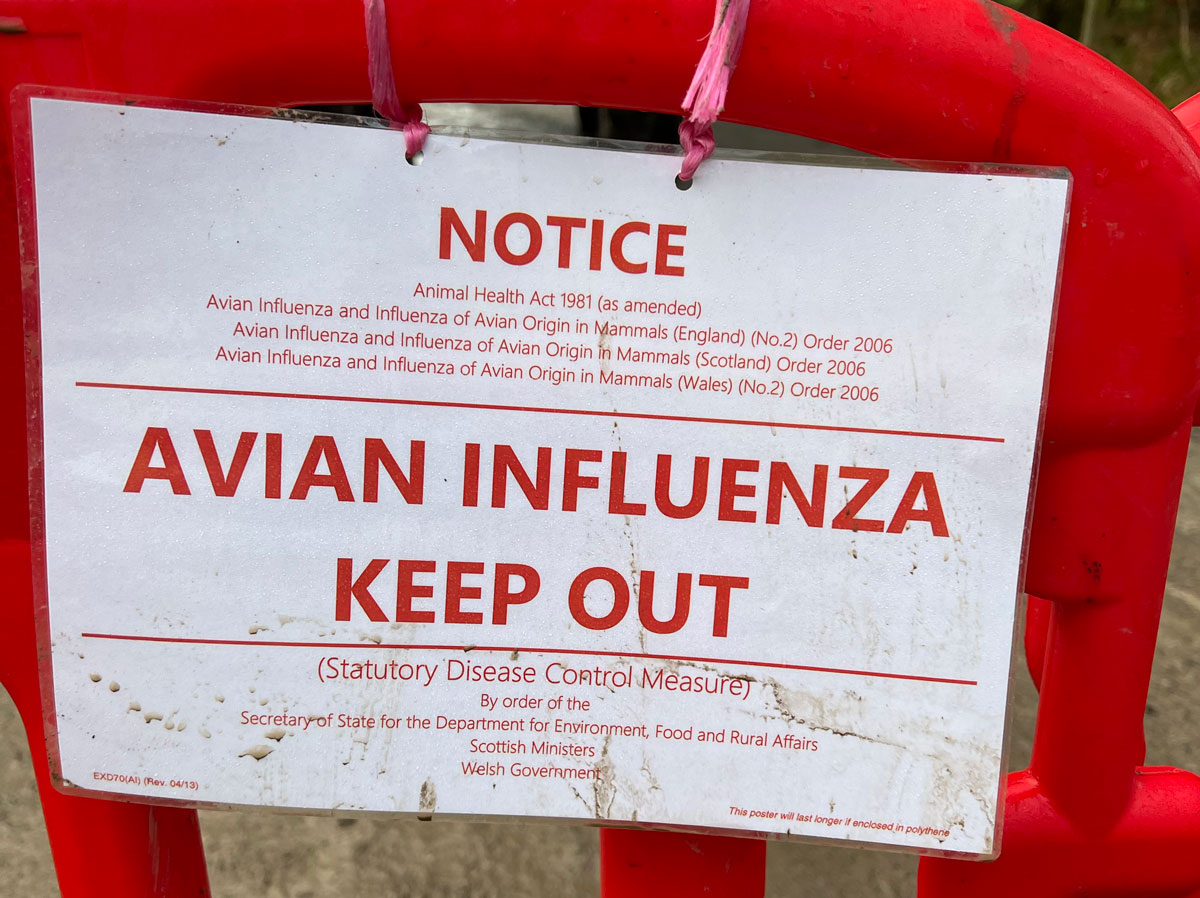
Around 64,000 birds will be culled in County Tyrone, Northern Ireland after government vets suspected a case of avian influenza on a commercial egg farm.
The Department of Agriculture, Environment and Rural Affairs (DAERA) was notified about the suspected case at the farm in Dungannon on Friday (14 February).
DAERA Minister Andrew Muir said after further investigation, appropriate disease control measures had been enacted, including the "humane culling of all poultry on site" as a "precautionary measure".
There is a mandatory poultry housing order in effect from Monday (17 February) across the whole of Northern Ireland in order to stem the spread of avian influenza.
It follows the UK government expanding its housing measure to more counties in England, including Herefordshire, Worcestershire, Cheshire and Lancashire.
DAERA veterinary officer Ignatius McKeown said the government was concerned about "a major disease breakout in a highly concentrated poultry area of Northern Ireland."
The case of bird flu was first detected at the Agri-Food and Biosciences Institute (AFBI) in Belfast but further testing has to take place for confirmation.
Mr McKeown said the culling of 64,000 birds on the farm had already started, and no other farms were impacted by the disease.
"The Dungannon area has the main concentration of poultry in Northern Ireland," he said, "The department will deal with it as quickly and efficiently as possible."
Northern Ireland relies heavily on the agri-food industry as a source of employment, with poultry and egg production contributing significantly to the economy, valued at over £600m.
What does the housing measure mean?
The mandatory measure means bird keepers in Northern Ireland and in certain counties in England must:
• Housing or netting all poultry and captive birds
• Cleanse and disinfect clothing, footwear, equipment and vehicles before and after contact with poultry and captive birds – if practical, use disposable protective clothing
• Reduce the movement of people, vehicles or equipment to and from areas where poultry and captive birds are kept, to minimise contamination from manure, slurry and other products, and use effective vermin control
• Keep records of mortality, movement of poultry and poultry products and any changes in production
• Thoroughly cleanse and disinfect housing on a continuous basis
• Keep fresh disinfectant at the right concentration at all farm and poultry housing entry and exit points
